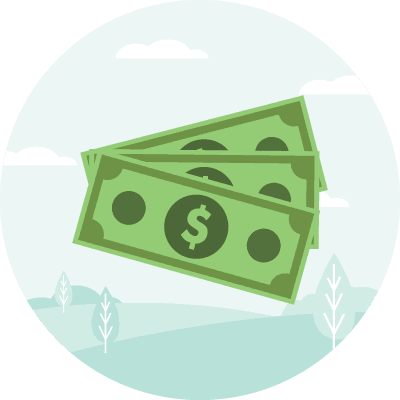What is Private Mortgage Insurance (PMI)?
Private Mortgage Insurance Basics
The purpose of PMI is to protect the lender, not the borrower if the borrower is unable to make the regular payments on their loan[1]. When a lender has a higher loan-to-value (LTV) ratio as a result of a borrower’s lower down payment, it represents a greater risk to the lender, which is the reason for this additional requirement.
The Homeowner’s Protection Act of 1998 allows PMI to be canceled when the amount owed reaches a certain level[2].
For example, if John is applying for a home mortgage that will finance 85% of the property’s value, a conventional lender would require him to pay an additional monthly premium for private mortgage insurance. This is a standard requirement for any loan exceeding 80% of the property’s value.
Private Mortgage Insurance is provided by a third-party insurance company and is paid by the borrower, not the lender. The insurance premium is most commonly paid by the borrower in monthly installments, along with their regularly scheduled mortgage payment. However, it may also be feasible for the borrower to pay their insurance premium in one lump sum at closing, or a combination of a lump sum at closing along with smaller monthly premiums[2].
Alternatives to Private Mortgage Insurance
Private Mortgage Insurance will most likely be part of the equation for any conventional loan that covers more than 80% of the property’s value, but there may be some alternatives to conventional loans that allow for a lower down payment without the additional cost of PMI.
VA Loan Program
One such alternative is the VA loan, which is a mortgage that is either issued or backed by the Veterans Administration, now the Department of Veterans Affairs. The 1944 GI Bill authorized VA loans, and they have since become a popular way to finance a home purchase. VA loans are one of the few home loan programs that do not require a down payment. Because the VA guarantees loans, borrowers are not subject to PMI premiums, which can cost between 0.5% and 2% of the loan amount.
FHA Loan Program
Another alternative to consider is the FHA loan, which is a mortgage insured by the Federal Housing Administration. This loan program is popular among many first-time homebuyers because it provides a financing option for low and moderate-income borrowers with lower credit scores. FHA loans also allow for a much lower down payment of 3.5%.
While FHA loans do not require PMI, they do require a mortgage insurance premium (MIP). The annual MIP ranges from .45% to 1.05% of the loan amount, depending on the loan type, the loan amount, and down payment[3]. This amount is comparatively lower than the average cost of PMI.
Save More Before Buying
Of course, another sensible approach is for a home buyer to simply save their money until they can afford to make a 20% or higher down payment on their property. PMI is not a requirement for conventional loans when the borrower injects 20% or more of the property’s value.
A higher down payment may also reduce the interest rate of the loan, as a result of the lender’s lower loan-to-value.
How is PMI Calculated?
For conventional home loans, the cost of PMI typically ranges from 0.41% to 2.25% and depend on your credit score, loan-to-value (LTV) ratio, and debt-to-income (DTI) ratio[4]. For a helpful calculator that can quickly help determine that cost of PMI, be sure to check out this PMI Calculator from NerdWallet.
Sources
- Friedman, Jack P.,Harris, Jack C.,Lindeman, J. Bruce. Dictionary of Real Estate Terms (Barron’s Business Dictionaries) (pp. 603-604). Barrons Educational Series. Kindle Edition.
- Consumer Financial Protection Bureau (n.d.) What is private mortgage insurance? Retrieved from https://www.consumerfinance.gov/ask-cfpb/what-is-private-mortgage-insurance-en-122/
- FHA Loans (n.d.) Do FHA loans have PMI? Retrieved from https://www.fhaloans.com/faqs/fha-mortgage-insurance
- Nerd Wallet (n.d.) PMI Calculator Retrieved from https://www.nerdwallet.com/article/mortgages/pmi-calculator








